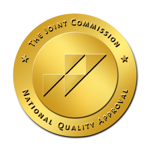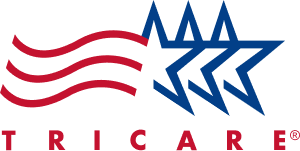Bel Aire Recovery Center
Overview
Settled on a quiet, landscaped campus in a semi-rural environment, Bel Aire Recovery Center offers medical detox and residential care for adults with substance abuse and co-occurring mental health challenges. The center offers a specialized recovery track for veterans and first responders, as well as a family program to involve loved ones in the healing process. Treatment is rooted in a neuroscience-informed approach.
Ages Served
- Adults (Ages 26-64)
- Young Adults (Ages 18-25)
Genders Accepted
- Female
- Male
Languages Served
- English
Treatment
- Long-term residential
- Residential detoxification
- Short-term residential
Special Programs
- Past trauma
- Mental health disorders
- Veterans
Similar Facilities
Loading...
No results for your current selections
View all facilities-
 Grand Falls Center For Recovery
Grand Falls Center For RecoveryJoplin, Missouri
-
 Gary E Miller Candian County - Childrens Justice Center
Gary E Miller Candian County - Childrens Justice CenterEl Reno, Oklahoma
-
 Clay Crossing Foundation Inc
Clay Crossing Foundation IncMaud, Oklahoma
-
 Crawford County Mental Health Center - Addiction Treatment Center
Crawford County Mental Health Center - Addiction Treatment CenterPittsburg, Kansas
-
 Brightli - Preferred Family Healthcare Inc
Brightli - Preferred Family Healthcare IncJoplin, Missouri
-
 Johnson County Mental Health Center - ACT
Johnson County Mental Health Center - ACTOlathe, Kansas
-
 DCCCA Inc - Options Adult Servs/Womens Recovery
DCCCA Inc - Options Adult Servs/Womens RecoveryWichita, Kansas
-
 Sunflower Recovery Center
Sunflower Recovery CenterOsawatomie, Kansas
-
 ReDiscover - Flory A
ReDiscover - Flory ALees Summit, Missouri
-
 Gold Bridge Treatment Center
Gold Bridge Treatment CenterLouisburg, Kansas
A Brain-Based Approach to Recovery
Treatment is centered around a brain-based model that helps clients understand how addiction alters brain pathways — and how those pathways can be repaired. This approach draws on neuroscience to guide treatment, showing clients how stress, trauma, and substance use affect thinking, emotion, and behavior. Through therapies like cognitive behavioral therapy (CBT), trauma-informed counseling, and wellness practices, clients learn to calm the nervous system and rebuild healthy patterns. The program emphasizes neuroplasticity — the brain’s ability to change — giving individuals tools to support long-term healing across emotional, physical, social, and spiritual dimensions.
Dedicated Program for Veterans and First Responders
Tactical Recovery is a specialized residential program developed for veterans and first responders. This track addresses the unique challenges faced by individuals with service-related trauma and substance use disorders. Clients receive 24/7 care in a structured environment with therapies such as cognitive behavioral therapy (CBT), dialectical behavior therapy (DBT), and neuro-counseling. The program also includes expressive arts, recreation therapy, and mindfulness practices tailored to support post-traumatic growth. Many staff members have military experience, creating a culture of trust, shared understanding, and purpose-built support.
Engaging Families in the Healing Process
The family program is designed to help loved ones understand the science of addiction and their role in the recovery journey. Through structured weekend programming, family members participate in educational workshops, group discussions, and family therapy sessions. The curriculum covers topics such as setting healthy boundaries, recognizing enabling behaviors, and improving communication. Special focus is given to how addiction affects brain function and family dynamics. By fostering honest dialogue and rebuilding trust, the program equips families to support their loved one’s recovery while also beginning their own healing process. Participation is strongly encouraged during residential care.
Calm Setting and Purposeful Amenities
The center offers a peaceful residential setting on the Kansas prairie, where clients engage in a structured, recovery-focused routine. The facility includes semi-private rooms, quiet outdoor spaces, and walking paths that promote reflection and calm. In addition to clinical programming, clients participate in restorative activities designed to support emotional and physical well-being. These include activities like mindfulness exercises, expressive arts groups, recreational outings, and movement-based activities like hiking or light fitness. Social connection is encouraged through shared meals and peer engagement. Meals are designed to meet dietary needs, including diabetic-friendly and gluten-free options. The environment is intentionally low-distraction, helping clients reset, recharge, and build healthy daily rhythms.
Continued Support After Residential Treatment
Led by a dedicated coordinator, the alumni program includes weekly peer-led recovery groups, alumni check-ins, and social events such as Chiefs games, Topgolf outings, amusement park visits, and hiking trips. These activities provide ongoing accountability and connection, helping individuals stay engaged in their recovery community long after discharge. Alumni are also encouraged to mentor new clients, creating a sense of purpose and continuity.
What Patients Are Saying
With an average rating of 4.1 stars from over 80 reviews, most patients report life-changing experiences. They highlight the welcoming staff, effective programs, and especially the power of ongoing connection through the alumni network. Some reviewers note frustrations with communication or administrative processes, but the overwhelming theme is gratitude for a place that feels like a turning point — not just a program.
Cost and Insurance
Insurance Accepted
-

-

-

-

-

-

- Other Private Insurance
Disclaimer: Additional insurance plans may be accepted. Please contact the provider directly to confirm current coverage details, as this information may change.
Cost
$$ - Moderate Cost Facility
Cost ratings are our best estimates to help guide you, not guarantees. Actual costs may vary with treatment, insurance, and other factors. While we aim for accuracy, details may change.
Financial Assistance
- Does not offer Free
- Does not offer Payment assistance
- Does not offer Sliding fee scale
Nearby Facilities
Loading...
No results for your current selections
View all facilities-
 DCCCA Inc - Options Adult Servs/Womens Recovery
DCCCA Inc - Options Adult Servs/Womens RecoveryWichita, Kansas
-
 DCCCA Inc - Womens Recov Ctr of Central Kansas
DCCCA Inc - Womens Recov Ctr of Central KansasWichita, Kansas
-
 Miracles Inc - Residential Family Behavioral Health
Miracles Inc - Residential Family Behavioral HealthWichita, Kansas
-
 Mirror Inc - Newton Residential Recovery Services
Mirror Inc - Newton Residential Recovery ServicesNewton, Kansas
-
 Valley Hope of Moundridge
Valley Hope of MoundridgeMoundridge, Kansas
-
 Substance Abuse Center of Kansas - Residential Services
Substance Abuse Center of Kansas - Residential ServicesWichita, Kansas
-
 Mirror Inc/Newton - Residential and Outpatient Recovery
Mirror Inc/Newton - Residential and Outpatient RecoveryNewton, Kansas
-
 Brightli - Preferred Family Healthcare Inc
Brightli - Preferred Family Healthcare IncWinfield, Kansas
Treatment
Treatment Setting
- Long-term residential
- Residential detoxification
- Short-term residential
Treatment Approaches
- Anger control support
- Brief intervention
- Cognitive behavioral therapy (CBT)
- Incentive-based therapy
- Motivational interviewing
- Relapse prevention support
- Substance use counseling
- Trauma-focused counseling
Additional Support and Services
- Case management support
- Help with transportation
- HIV early intervention services
- Mental health support
- Social skills training
Counseling and Education
- Couples counseling
- Family therapy
- General health education services
- Group therapy
- Hepatitis education and support
- HIV/AIDS education and support
- One-on-one counseling
- Substance use education
- Tobacco and vaping cessation counseling
Transition Support
- Discharge and next steps planning
- Ongoing recovery care
- Overdose prevention and naloxone education
- Post-discharge follow-up
Testing & Pre-Treatment
- Breathalyzer testing for alcohol
- Community outreach and support
- Comprehensive health checkup
- Hepatitis B testing
- Hepatitis C testing
- Mental health assessment
- Mental health screening
- Monitoring for metabolic syndrome
- Oral fluid testing for drugs or alcohol
- Substance use assessment
- Temporary support for clients
- Testing for HIV
- Testing for Sexually Transmitted Infections
- Tobacco use assessment
- Tuberculosis screening
- Urine testing for drugs or alcohol
- Substance use screening
Amenities and Experiences
Amenities
- Access to nature
- Dietary accommodations
- Gardens
- Healthy meals
- Outdoor relaxation lounge
- Walking paths
Room Amenities
- Air conditioned rooms
- Bathroom essentials
- Outdoor space
- Private bathroom
- Private rooms
- Shared bathroom
- Shared room options
Activities
- Games
- Fitness activities
- Hiking
- Offsite outings
Settings
- Country
Policies
- Allows cell phones
- Smoking allowed in designated areas
- Vaping allowed in designated areas
Ownership Type
- For-profit
Quality and Trust

The Joint Commission
The Joint Commission is one of the most trusted names in healthcare. If a rehab center has this accreditation, it means they meet strong national standards for safety, treatment quality, and staff training.
Learn more
Commission on Accreditation of Rehabilitation Facilities
CARF reviews rehab programs to make sure they provide respectful, effective, and personalized care. For addiction treatment, CARF uses standards developed with the American Society of Addiction Medicine (ASAM), so this accreditation shows the program follows trusted, evidence-based guidelines for treating substance use.
Learn moreReviews and Ratings
- The staff at Bel Aire is consistently praised for their compassion and dedication to helping clients succeed in their recovery journeys.
- The facility offers a comprehensive program that addresses both addiction and underlying mental health issues, ensuring holistic support.
- Bel Aire's aftercare program, including alumni activities and ongoing support, is highlighted as a key factor in maintaining long-term sobriety.
Popular Destinations
Loading...
-
 Mountain Springs Recovery
Mountain Springs RecoveryMonument, CO
-
 Grand Falls Center For Recovery
Grand Falls Center For RecoveryJoplin, MO
-
 Lincoln Recovery
Lincoln RecoveryRaymond, IL
-
 Laguna Shores Recovery
Laguna Shores RecoveryDana Point, CA
-
 Monarch Shores
Monarch ShoresDana Point, CA
-
 Genesis House - United Recovery Project
Genesis House - United Recovery ProjectLake Worth, FL
-
 Boca Recovery Center
Boca Recovery CenterBoca Raton, FL
Loading...
No results for your current selections
View all facilities in CaliforniaLoading...
No results for your current selections
View all facilities in FloridaStart Your Recovery provides facility information using publicly available data from the Substance Abuse and Mental Health Services Administration as well as other sources. We cannot independently verify the accuracy of all data. Start Your Recovery does not guarantee the quality of care or results of working with any provider or treatment facility. Please contact us if you are the proprietor of a facility and have updates or corrections to site content. The information provided on this site is intended for educational purposes, and is not a substitute for professional medical guidance or treatment.
















